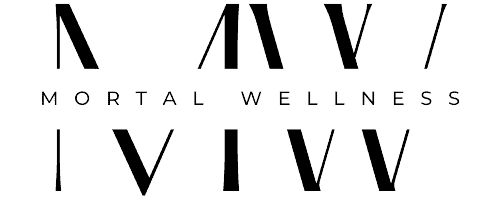As an Amazon Associate I earn from qualifying purchases.
The Islamic diet is a lifestyle that follows the guidelines set by Allah in the Qur’an. This includes abstaining from food or drink that has been forbidden, such as pork and alcohol.
The food eaten must also be halal, meaning it must not contain any ingredients that have been prohibited in Islam.
Coffee is a popular beverage with many people around the world. It contains caffeine which provides energy and can also stimulate the central nervous system. For Muslims, coffee (and other drinks containing caffeine) is contested on whether or not it is allowed because it might be violating their Islamic diet.
Coffee is a drink that we consume every day, and for most of us, it’s a necessity. But to Muslims, the question changes from whether Coffee is good or bad to whether it is haram or halal?
In this article, we will discuss the Islamic perspective on coffee and caffeine and what Allah has said in the Qur’an and Sunnah about them. We will also look at the opinions of Muslim scholars as well as what some non-Muslim scholars have to say about coffee and caffeine.
Is Coffee & Caffeine Haram or Halal?
This question has been debated in the Muslim community for years. Some Muslims believe that coffee is haram because of how it affects their body and mind, while others believe that it’s halal because they don’t see any harm in drinking coffee.
There are two perspectives to this debate: one side believes that coffee is haram because of how it affects their body and mind, while the other side believes that there’s no harm in drinking coffee.
Why is Caffeine Not Haram in Islam?
The reason why Muslims are not allowed to drink other drinks such as alcohol or consume any other intoxicants is that these substances can cause harm in several ways.
For example, they can lead to addiction, they can lead to health problems such as liver disease, and can also negatively impact their mental health. But in the case of Coffee/Caffeine, it does not present any of the previously mentioned negative effects. And because of that, scholars argue that caffeine cannot be prohibited and on the contrary, it should be encouraged as it helps to stay awake and alert when studying or praying.
Coffee & Caffeine Consumption in Islam
Coffee and caffeine are not forbidden in Islam. There are many different opinions on the subject. Some believe that it is forbidden, some think it is permissible, and some say it is only allowed if the person has a medical condition.
Some scholars prohibit coffee because they believe that coffee beans are not halal (permissible) to eat or drink. But this opinion is not shared by all Muslims. The majority of scholars agree that drinking coffee or eating coffee beans does not violate any Islamic law as long as one does so in moderation, as with any other food or drink.
What Does the Quran Say About Coffee and Kinds of Food?
The Quran is the holy book of Islam which contains verses and teachings from Allah, who is the Islamic God.
The Quran does not mention coffee or any specific foods, but it does mention that Muslims should eat healthily and avoid unhealthy food. It also mentions that Muslims should drink water instead of sugary drinks.
Many Muslims believe that the Quran says nothing about coffee or food because there are no verses in the Quran about these topics specifically.
How is Coffee Related to Islam?
Coffee is one of the most consumed beverages in the world, it is also one of the most popular drinks in the Muslim world. Muslims are not prohibited from drinking coffee.
Some Muslims believe that coffee is a stimulant and that it is therefore not permissible to consume during daylight hours. The Quran does not mention coffee at all, but some Islamic scholars have stated that there are no objections to drinking coffee.
Is Coffee Mentioned In The Quran or Hadith?
This is a question that has been asked for centuries. Many believe that coffee is mentioned in the Quran and Hadith and many do not.
The first mention of coffee can be found in the 15th century when it was described as a drink made from grain and water boiled together. It was not until the 16th century that it was mentioned as a popular drink in Turkey, Syria, Egypt, Yemen, and Ethiopia. In these countries, people drank coffee to stay awake during long prayers or while they studied their religious texts.
But it wasn’t until the 17th century that coffee made its way to Europe. This is when it became popular among scholars and scientists because of its stimulating effect on the mind. This means that coffee passed through the Islamic world first, before reaching the west and helping to start the industrial revolution in Europe.
Was Coffee Invented by Muslims?
The first mention of coffee is in a book called Kitab al-Jazari, written by an Arab scholar in the 13th century. He tells the story of how a young goatherd named Kaldi found his goats dancing in circles after eating red berries from a tree that grew near his house. The scholar was so intrigued by this that he tried the berries himself and found that they made him more alert.
The legend goes that Kaldi shared his discovery with an Egyptian monk named Abu Marwan Abd al-Ghaffar ibn Harith, who then experimented with the fruit and boiled water to create what we now know as coffee. However, there is no evidence that this Arab monk ever visited Ethiopia or the Horn of Africa. and it is more likely that Kaldi discovered the drink on his own.
In Europe, coffee quickly spread to become a popular beverage. In fact, the earliest known mention of coffee in an Italian document dates back to 1327. Since then, it has been served at many royal courts and social events.
What Religions Do Not Allow Caffeine?
Caffeine as a stimulant can be found in many religions. However, some religions do not allow caffeine.
The Church of Jesus Christ of Latter-day Saints, for example, does not allow several types of caffeine including coffee and most types of tea. The reason for this is that they believe it is addictive and harmful to the body. They also believe it can negatively impact one’s health and well-being.
Jehovah’s Witnesses also do not allow caffeine in their diet because they believe it will keep them awake at night if they consume it before bedtime.
Conclusion
Knowing whether coffee and caffeine are halal or haram will hopefully be a benefit to you and your life. Whether you choose to drink it or not, you can now make a decision with more information that will, hopefully, leave you at peace.







